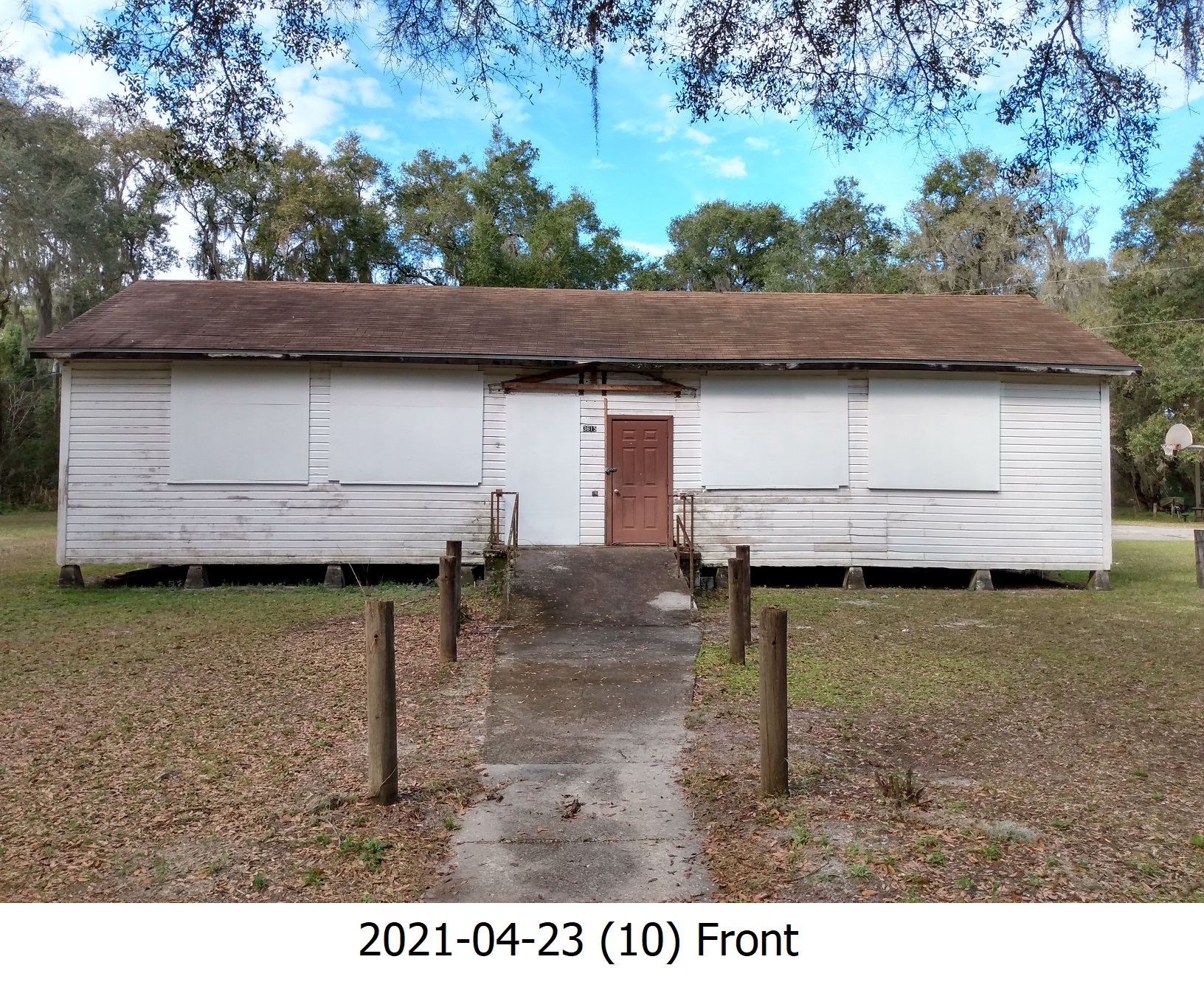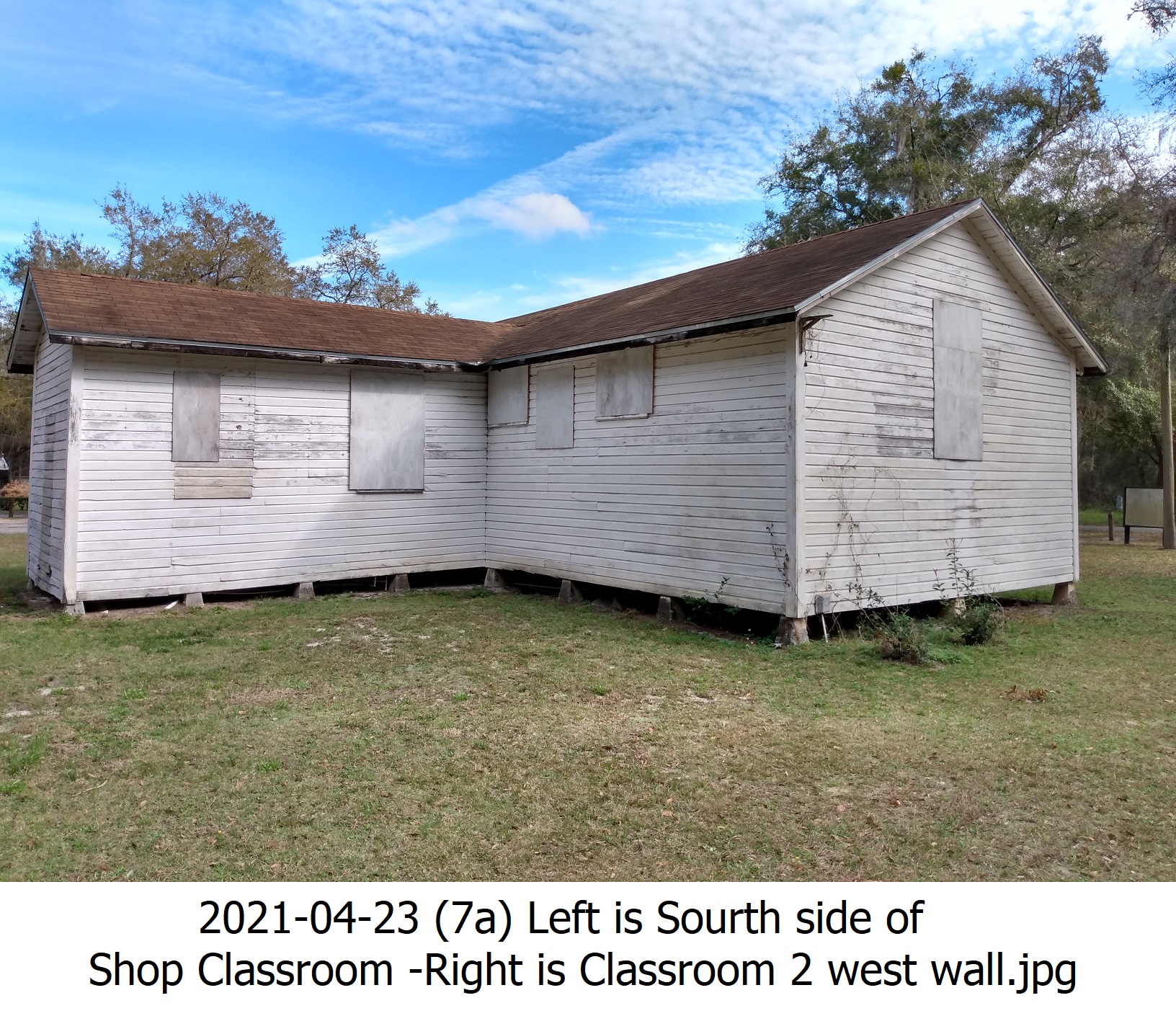Okahumpka Rosenwald School
The Okahumpka Rosenwald School is a two-room, wood frame, one-story building located in a historically African American neighborhood, north of the center of Okahumpka in Lake County. The Julius Rosenwald Fund facilitated the construction of hundreds of ‘Rosenwald Schools’ for Black students across the South from 1917 to 1932. Julius Rosenwald, then head of Sears, Roebuck and Co., partnered with Booker T. Washington and the Tuskegee Institute and endowed the fund to design and build schools across the south for African Americans. The Okahumpka Rosenwald School was constructed in 1929 and replaced an earlier one-room school for African American students. The Rosenwald Fund provided $500 towards the school’s total cost of $3,320, with the remainder provided by the Black residents of Okahumpka and the Lake County School Board. The Okahumpka Rosenwald School is located on the site of the previous school where civil rights pioneer Virgil Hawkins obtained his education. Hawkins is noted for suing the University of Florida for racial discrimination in 1949, when the university denied his application to their law school. The subsequent legal cases resulted in the integration of the law school in 1958, although Hawkins himself never attended. The name of the road where the school is located is named Virgil Hawkins Circle in his honor.

The Okahumpka Rosenwald School is an important surviving example of a historic African American school design in Central Florida. A total of 140 Rosenwald funded schools and auxiliary buildings were constructed in Florida between 1921 and 1932.The Okahumpka School is one of two surviving examples in Lake County, out of eight originally constructed. The other is the Rosenwald School in Mount Dora. While the interior partitions of the Okahumpka School no longer exist, the building retains its original exterior materials and location. The school was constructed using one of the architectural plans provided by the Rosenwald Fund. It sits on concrete piers and has its original Dutch-lap, wooden siding. Originally, the school would have had large windows which provided sunlight as the main source of light for the school.

In addition to serving as a school, this property was the only social center for African Americans in Okahumpka. After the school closed in 1964, the property continued serving as a community center. In 2021, the Florida Trust for Historic Preservation included the Okahumpka Rosenwald School on its “11 to Save” list of most endangered historic places in Florida. Currently, the Okahumpka Community Club seeks to rehabilitate the school and restore its function as a community center. To find out more about the property, visit www.okahumpka.org or www.facebook.com/okahumpkacommunityclub.

